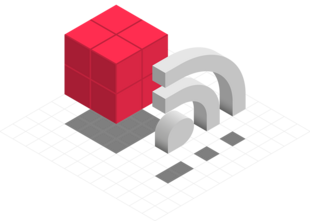What is Data Science?
Data science is a specialist area which uses statistical methods and modern technologies to gain insights from data. In particular, data scientists are currently using methods from the field of ML (Machine Learning) and AI (Artificial Intelligence) to obtain information from and make decisions based on a large amount of data. We have been supporting companies for many years in the collection, transfer, storage and refinement of their data.

Reviving data

Transferring data

Storing data

Refining data
Added value through data refinement
The use of machine learning methods has proven that they offer significant added value. With our data scientists, we put a special focus on the scientific analysis of data sets. The goal is to enable you to gain even greater added value from your data.
Cost-effective design of processes and production
To make your production more economical, topics such as predictive maintenance and anomaly detection are of great importance.
In addition, it is possible to use historical data to optimize current processes and thus make them more efficient. The past is the key to the future: the variety of your data offers many opportunities.
Predictive Maintenance: Optimization of maintenance costs
Make your production more efficient!
How? With predictive maintenance. This method allows you to optimize the maintenance of machines and systems in production. Because if you only maintain your machines when it is probably necessary, you reduce the costs of unnecessary maintenance and at the same time increase production efficiency by reducing unnecessary maintenance.
In many production plants, maintenance is carried out preventively. This means that maintenance is carried out in time windows defined by runtime or fixed intervals. In some productions, no maintenance windows are set at all. A failure of a machine then leads to an unplanned production stop. In this case, the machine is maintained reactively.
Every line or part of a line in a production has an inherent residual service life, which decreases with increasing use. Predictive maintenance is about estimating the remaining service life based on existing data. If the remaining duration is known, material can be ordered early for maintenance, and thus maintenance can be carried out with minimal disruption to production. In extreme cases, hazards for employees can also be avoided if a malfunction would jeopardize safety.
The challenge: An unplanned failure of a machine or system should be prevented, and at the same time maintenance should only be carried out when necessary. However, there is no one-size-fits-all solution for this. Every production is different and the requirements for the solution are therefore different.
The MEGLA approach:
Benefit from our MEGLA approach, designed to help you uncover the true potential of your data and turn it into measurable value. Whether you’re just getting started or already have your own data science team, we support you in developing a model tailored precisely to your requirements - one that sustainably optimizes your production. To achieve this together, we follow a strategic, step-by-step process*:
*Based on the proven CRISP-DM: Towards a Standard Process Model for Data Mining
GET MORE OUT OF YOUR DATA
Harness the full potential of modern data science with our Data Science as a Service approach, powered by platforms such as Databricks.
Instead of rigid off-the-shelf solutions, you’ll receive customized services aligned with your specific goals. Take advantage of our expertise and strong technology partners to transform your data into measurable success. Discover more about our Databricks services now!










